If you’re curious about exploring your genetic ancestry or unraveling familial puzzles regarding sibling relationships, a sibling DNA test kit could be the tool you need. It’s normal to have reservations about privacy, the accuracy of results, and the user-friendliness of these kits.
To assist you, I’ve evaluated a variety of DNA kits on the market, focusing on criteria that cater to your particular needs. Key aspects I examined include the scope of the DNA database, privacy protocols, the comprehensiveness of reports, and, crucially, the precision in identifying sibling connections. From this extensive review, I’ve pinpointed the top DNA kits for siblings, streamlining your search for the right testing solution.
Based on my tests, AncestryDNA is the top choice for sibling DNA. It outperforms others with its expansive genealogical database, stringent privacy protocols, and comprehensive, accurate sibling match results. Its user-friendly interface and detailed reports further solidify its position as a reliable DNA test kit for siblings. So, you can confidently venture into your familial exploration with AncestryDNA.
Find Siblings With AncestryDNA
Short on Time? Here are the best DNA test kits for siblings
- AncestryDNA – The largest database of DNA results and family trees in the world which allows you to easily match siblings and relatives across the globe.
- 23andMe – Great for finding siblings thanks to its popularity and wide user database.
- MyHeritage – Detailed ancestry reports with a unique family tree builder that allows you to easily match relatives.
- LivingDNA – In addition to sibling matches, also provides health insights based on your unique DNA.
- FamilyTreeDNA – Analyses both maternal and paternal haplogroups so you can trace your siblings on both sides of the family.
- Nebula Genomics – Offers whole genome sequencing and decodes almost all of your genetic markers for incredibly accurate sibling and relative matches.
Our Best DNA Kits for Siblings Reviewed
1. AncestryDNA — In-Depth Ancestry and Our Top Pick for Sibling DNA
- The largest database of DNA in the world (18 million samples) to easily match with siblings
- Family tree builder with access to historical records
- Simple saliva swab
- Results in 6 to 8 weeks
AncestryDNA’s key strength lies in its vast genetic database. When you send in your sample, it is compared to millions of other DNA samples. This allows it to pinpoint not just your broad ethnic origins, but also potential sibling matches within its user base.
It goes a step further by providing a confidence level for each potential sibling match. This feature is backed by scientific algorithms, ensuring high accuracy levels. If it identifies a sibling match, you can be confident about the validity of that result.
With AncestryDNA, you also get an interactive family tree feature. You can add known siblings and it fills in potential matches, helping you visualize your familial connections. This keeps your sibling DNA exploration organized and easy to understand.
AncestryDNA places a high emphasis on privacy. It secures your data using top-notch encryption standards and never shares your genetic information without your explicit consent.
If you’re just interested in exploring historical records and building a family tree, AncestryDNA also offers a free trial of its subscription service. This means that you can research possible relatives for free without having to take a DNA test first.
2. 23andMe — Find Siblings and Get Health Reports
- Compares your DNA against 45 known populations
- Traces your DNA across 2750+ regions
- Includes traits report with its basic screening
- See if you have Neanderthal ancestry
- Results in 3 to 4 weeks
When you and your sibling submit your DNA samples to 23andMe, it analyses genetic markers to determine your biological relationship. It compares segments of your DNA to identify shared ancestry and predict your relationship, whether you’re full siblings, half-siblings, or not related biologically. This process involves looking at variations in your DNA and matching those that are identical or similar, which is indicative of a shared genetic heritage.
23andMe’s Relative Finder feature is particularly useful for sibling DNA testing. It uses your DNA results to find and connect you with relatives within its database, including siblings. If you and your sibling are both on 23andMe, this feature can automatically detect your relationship based on the percentage of DNA shared. It’s a straightforward way to confirm sibling relationships, especially in cases where the familial connection is uncertain.
The service also offers detailed ancestry reports, which can enhance your understanding of your shared heritage. By analyzing your DNA, it provides insights into your ancestral origins, migration patterns, and even traits that you may have inherited from common ancestors. This information can be especially fascinating for siblings, offering a deeper look into the genetic traits and histories that bind you together.
Moreover, 23andMe includes health-related genetic reports that can inform you about predispositions to certain conditions that might be shared between siblings. While this feature goes beyond just confirming a sibling relationship, it can provide valuable insights into the health aspects you may have in common, helping you make informed decisions about your health and lifestyle.
3. MyHeritage — Easily Connect With Siblings and Other Relatives
- Offers a relative finder feature
- Bring your family tree to life with images, videos and music
- Simple saliva swab
- Results in 3-4 weeks
MyHeritage DNA offers a unique feature that sets it apart: its Family Networking platform. Once you’ve received your results, you can use this tool to connect with potential siblings identified in the database. It facilitates meaningful interactions, while always keeping your information secure.
Its sibling matching system is efficient and precise. When your sample is processed, it compares your DNA markers against those of other users to identify sibling matches. It ensures you receive the most accurate matches, making your search for siblings straightforward.
For a more intuitive experience, it provides a dynamic family tree builder. You can plot out your known siblings, and it incorporates potential sibling matches, rendering a comprehensive, visual overview of your family connections.
4. LivingDNA — Match With Siblings and Get Health Insights
- Health insights along with your ancestry report
- Match with siblings and relatives
- Simple saliva swab
- Results in 6-8 weeks
LivingDNA stands out with its dual capability. Not only does it provide robust sibling matching features, but it also offers health reports based on your genetic markers. This means you can not only connect with siblings but also understand shared genetic health predispositions.
Its sibling DNA match system uses a comprehensive comparison of your DNA against its database. By doing so, it identifies potential sibling matches with a high degree of precision, aiding you in your quest for familial connections.
It also has an intuitive family network feature. This tool allows you to visually map out your known siblings and integrates potential matches, providing a clear picture of your genetic relationships.
5. FamilyTreeDNA — Explore Maternal and Paternal Haplogroups
- Traces maternal and paternal haplogroups
- Matches you with relatives intuitively
- Simple saliva swab
- Results in 6-8 weeks
FamilyTreeDNA offers a unique approach to sibling DNA testing by focusing on maternal and paternal haplogroups. This means it can trace your ancestry along your maternal and paternal lines, potentially identifying siblings who share these lines.
It’s equipped with advanced algorithms that compare your DNA markers with its database. This allows it to provide you with a list of potential sibling matches. The high level of precision it applies ensures that the matches you receive are likely to be true relatives.
FamilyTreeDNA also features an interactive family tree tool. It lets you chart out your known siblings and integrates possible matches, creating a visual representation of your genetic relationships.
Get Started With FamilyTreeDNA
6. Nebula Genomics — Whole Genome Sequencing for Detailed DNA Breakdown
- Large database and whole genome sequencing to find siblings and relatives
- Traces your maternal and paternal lines
- Simple saliva swab
- Results in 8-10 weeks
Nebula Genomics stands out by offering whole genome sequencing. This comprehensive process reads nearly 100% of your genome, providing a detailed breakdown that can be instrumental in accurately identifying sibling relationships.
It analyzes your genetic information against its database, finding potential sibling matches based on similarities in the whole genome. The depth of this analysis increases the likelihood of precise sibling matches, making your search process more reliable.
Moreover, it allows you to construct a visual family tree with your known siblings. When it finds potential matches, these are seamlessly integrated into your tree, giving you a complete view of your genetic connections.
Get Started With Nebula Genomics
Tips On How to Choose the Best DNA Test Kit for Siblings
In identifying the best DNA test kits for siblings, I adhered to specific criteria. These criteria, which you can also use in your decision-making process, ensure that the kit will meet your specific needs for sibling identification.
- Size of the database. A larger database increases the chance of finding potential sibling matches. I prioritized DNA kits with larger user bases, enhancing the probability of identifying siblings.
- Privacy measures. Safeguarding your genetic data is crucial. I looked for DNA kits that utilize robust encryption methods and require your explicit consent before sharing any genetic information.
- Detailed reporting. Detailed reports allow you to understand your genetic relationships better. I focused on DNA kits that provide comprehensive reports, highlighting potential sibling matches with a high degree of accuracy.
- User-friendly interface. A simple, easy-to-use interface can significantly improve your experience. I preferred kits with intuitive designs and features, making the process of exploring sibling DNA more accessible.
- Health insights. Although not crucial for sibling identification, these insights can be valuable. I gave preference to kits offering health insights based on genetic markers, providing you with a broader understanding of your genetic profile.
Types of Sibling DNA Tests
There are three main types of sibling DNA tests: Full Sibling, Half Sibling, and Avuncular tests. A Full Sibling test assesses whether two individuals share both biological parents. The Half Sibling test aims to ascertain if two people have one biological parent in common. Finally, Avuncular tests are employed to evaluate the genetic connection between aunts or uncles and their nieces or nephews.
How Sibling DNA Tests Work
Sibling DNA tests examine the number of shared DNA markers between the individuals being tested. These tests often focus on specific regions of DNA known to vary among individuals. Labs use statistical models to calculate the likelihood that two or more individuals are full siblings, half-siblings, or not related at all.
The Role of Autosomal DNA
Autosomal DNA tests look at chromosomes 1-22, which are non-sex chromosomes. Both full and half-siblings will share a significant percentage of their autosomal DNA. Full siblings generally share about 50% of their autosomal DNA, while half-siblings share approximately 25%.
Importance of X and Y Chromosomes
In certain tests, the X and Y chromosomes play a crucial role. For brothers, the Y-chromosome inherited from their father is identical, making Y-chromosome testing effective for verifying paternal relationships. Similarly, sisters with the same parents will each receive one X chromosome from their mother and one from their father.
Limitations of Sibling DNA Tests
While sibling DNA tests are generally accurate, they do have limitations. For example, they can’t specify the nature of a relationship beyond statistical likelihood. It’s also possible for unrelated individuals to share more DNA than expected by chance alone, although this is rare.
Ethical Considerations
Before proceeding with any DNA test, it’s essential to consider the privacy implications. Results can sometimes reveal unexpected family relationships that may be sensitive. Always discuss with the other party involved, and make sure to read and understand the privacy policies of the testing service you choose.
Interpretation of Results
Upon receiving your results, you may see terms like “likelihood ratio” or “confidence level.” These terms refer to the statistical probability that you share a sibling relationship with the tested individual. A higher likelihood ratio or confidence level usually indicates a stronger biological relationship.
Quick Comparison Table: Best DNA Tests for Siblings
For a more detailed look, I’ve provided actual data for each DNA kit’s database size and added additional relevant features for comparison.
| DNA Kit | Database Size (in millions) | Relative Finder | mtDNA & Y-DNA Mapping | Family Tree Builder | Time to Results (in weeks) | Price |
|---|---|---|---|---|---|---|
| Ancestry | 18 | Yes | No | Yes | 6-8 | $99.00 |
| 23andMe | 13.6 | Yes | Yes | Yes | 3-4 | $229.00 |
| MyHeritage | 3.8 | Yes | Yes | Yes | 3-4 | $89.00 |
| LivingDNA | 1.5 | Yes | Yes | Yes | 6-8 | $90.00 |
| FamilyTreeDNA | 2 | Yes | Yes | Yes | 6-8 | $79.00 |
| Nebula Genomics | 0.7 | Yes | Yes | No | 8-10 | $249.00 |
Get the Best DNA Test Kit for Siblings
Understanding your sibling DNA can unravel familial mysteries and deepen your knowledge of your genetic roots. A reliable DNA test kit is the key to this exploration, offering comprehensive analysis, precise sibling matching, and stringent privacy measures.
Based on my extensive testing, I recommend AncestryDNA as the best DNA test kit for siblings. Its vast database enhances the probability of finding potential sibling matches. Coupled with its confidence levels for each match, user-friendly interface, and stringent privacy standards, it ensures that your journey into the world of sibling DNA is both fruitful and secure.
FAQs on DNA Kits for Siblings
How accurate are sibling DNA tests?
Sibling DNA tests are generally highly accurate. They work by comparing specific regions of your DNA to those of other people in the database. The more similarities found, the higher the likelihood of a familial relationship. However, it’s important to note that these tests can’t conclusively prove a sibling relationship. Other factors such as large shared segments from common ancestors may influence the results.
Can a DNA test distinguish between full and half-siblings?
Yes, most DNA kits can distinguish between full and half-siblings. By comparing the amount of shared DNA, they can provide insights into whether siblings share both parents or just one. However, keep in mind that the results are probabilities, not certainties.
Are DNA kits easy to use?
Most DNA kits are designed to be user-friendly. They typically include simple instructions for collecting and sending your DNA sample. Online results are often presented in an understandable format, such as interactive family trees or detailed reports.
Can DNA kits provide health information?
Some DNA kits, such as LivingDNA and Nebula Genomics, offer health insights based on your genetic markers. While not directly related to sibling identification, this information can help you understand shared genetic health predispositions.
How much DNA do siblings share?
Full siblings typically share about 50% of their DNA, as they receive approximately half of their DNA from each parent. However, due to the random inheritance of genes, the exact amount can vary slightly. Half-siblings, sharing only one parent, usually share about 25% of their DNA.
Why Siblings Can Get Different Results from DNA Ancestry Tests?
Siblings can get different results from DNA ancestry tests due to the randomness of genetic inheritance. Each sibling inherits a unique combination of genes from their parents. As a result, siblings may display different proportions of their parents’ ethnicities in their DNA results.
Do Siblings Share the Same DNA?
No, siblings, unless they are identical twins, do not share the exact same DNA. Each child inherits a unique mix of genes from their parents, which results in siblings having some overlapping genetic material, but not identical DNA. This uniqueness is why each sibling has a distinct physical appearance and may have different health predispositions.
In conclusion, the best DNA Kits for Siblings are…
| Our Rank | Provider | Our Score | Starting Price | |
|---|---|---|---|---|
| 1 | 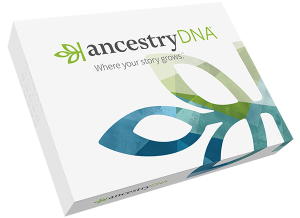  | Read Review | $99.00 | Visit Website |
| 2 | 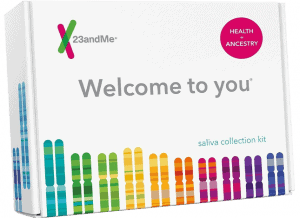  | Read Review | $99.00 | Visit Website |
| 3 | 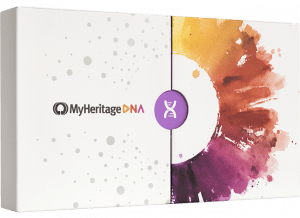  | Read Review | $89.00 | Visit Website |
| 4 | 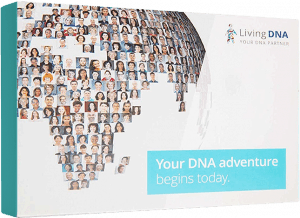  | Read Review | $90.00 | Visit Website |
| 5 | 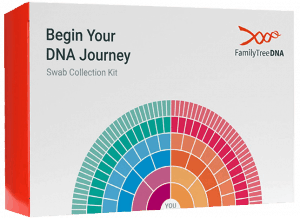 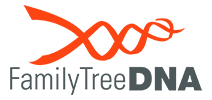 | Read Review | $79.00 | Visit Website |






